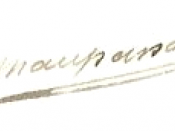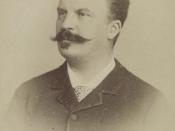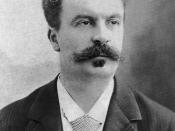Why is adultery so frightening yet so fascinating? In part, its because we recognize the appeal of it. We grew up in triangles, competing for our mother's attention with our fathers and our siblings, and vice versa. That taught us, deep inside, to be terrified of abandonment and to resent sharing. We never quite give up on the childish fantasy that somehow, someday, we'll find someone all our own who wants only us. This destructive fantasy keeps us looking for love in all the wrong places.
Adultery is about character or the lack of character. It stems from a lifetime of uncertainty, and insecurity. It is a symptom, which does not simply arise from a physical need but a combination of physical and emotional void. Despite our familiarity with adultery, we still do not understand it. It's time we stopped alternatively ignoring, excusing, and condemning this epidemic. To deal with a problem you have to comprehend it first.
What better way to comprehend this phenomenon than to look at great works of literature. Two such pieces that deal with adultery are "The Country Husband," by John Cheever and Guy Maupassant's "The Jewelry". These stories focus on infidelity from two views, that of the participant as in the case of "The country Husband." And the other from the perspective of a man betrayed by the women that he "loved."
In "The Country Husband," Cheever describes his character in depth and gradually reveals Francis Weed's weakness. He is a war veteran who is entrapped by the social constraints of the life he has chosen to lead, and the story centers around the events following a plane crash he lived through. This appears to emotionally shake something loose for him and drives him to a deep self-searching. He returns to his family...


